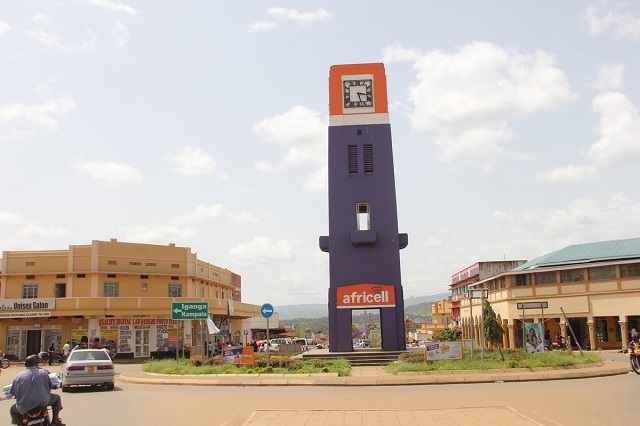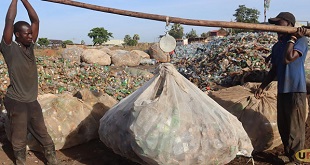
Mbale, Uganda | THE INDEPENDENT | A dilapidated police barracks, congested and disorganized bus park and raw sewerage obliterate the memory of Mbale as the cleanest town in Uganda. Mbale, gazetted as an urban authority in 1962 has been ruined through the 58 years of independent Uganda.
For those that have lived there before or immediately after independence, Mbale’s current state is disheartening and calls for urgent attention.
About eight kilometres out of Mbale city centre along Tororo road lives Naome Nora Aryada, the former mayor of Mbale municipality. She in an interview said she gets disturbed whenever she gets to the municipality in which she was a mayor in the seventies and early eighties.
Today, many of the buildings in Mbale are constructed over sewer lines explaining sewage floods along Tororo road. Several lockup structures were also constructed at the bus terminal narrowing the space meant for its expansion.
Aryada, a retired teacher does not comprehend why Mbale has taken a downward track from what it was at independence. She says she gets upset by the fact that the green parks in the city have been ruined too.
According to Aryada, part of the reasons why Mbale maintained its standards in the 70s’ and 80s’ was the technical competencies of people like late Engineer Martin Wangutusi Wambwa, a former planner for Kampala and later Mbale. At the time according to Aryada, even the Mayor and his deputy were appointed and not elected.
For Livingstone Okello Okello, a planner and former Commissioner for Lands, nostalgia of Mbale’s past saps his strength.
The greenery leading to Mount Elgon Hotel through senior quarters to state lodge Mbale has over the years been lost. The senior quarters which residents used to call “Mukizungu” a connotation of high standard of life has lost its glory too.
“The residents there used to keep their compounds very clean, the hedges were trimmed, the compounds slashed. And you were not allowed to open shops or keep animals in the senior quarters. Whenever you entered the air was different as it was cool and sort of clean” says Aryada
Naome Aryada’s dream is that as Mbale transitions into city status, its settlements should be planned in addition to keeping them clean.
What went wrong?
Charles Wakwabubi Siangu has lived in Mbale right before Independence. He thinks the expulsion of the Asians leading to partial collapse of the African Textile mills and cotton ginneries during the Iddi Amin regime is partly to blame.
He says the increase in population of Mbale came with increase in accumulation of garbage that continues to chock most parts of what used to be the cleanest town. Siango however says the biggest cause of Mbale’s ruin has been greed characterized by the desire by those that have held leadership positions to amass wealth.
The boundaries of Mbale have just been extended following the elevation of Mbale municipality to city status. Sub counties like Mutoto, Bukasakya and Mooni are emerging with huge unplanned settlements.
Charles Wakwabubi Siangu is of the view that no new building should be allowed in such areas until the places are planned.
******
URN
 The Independent Uganda: You get the Truth we Pay the Price
The Independent Uganda: You get the Truth we Pay the Price



